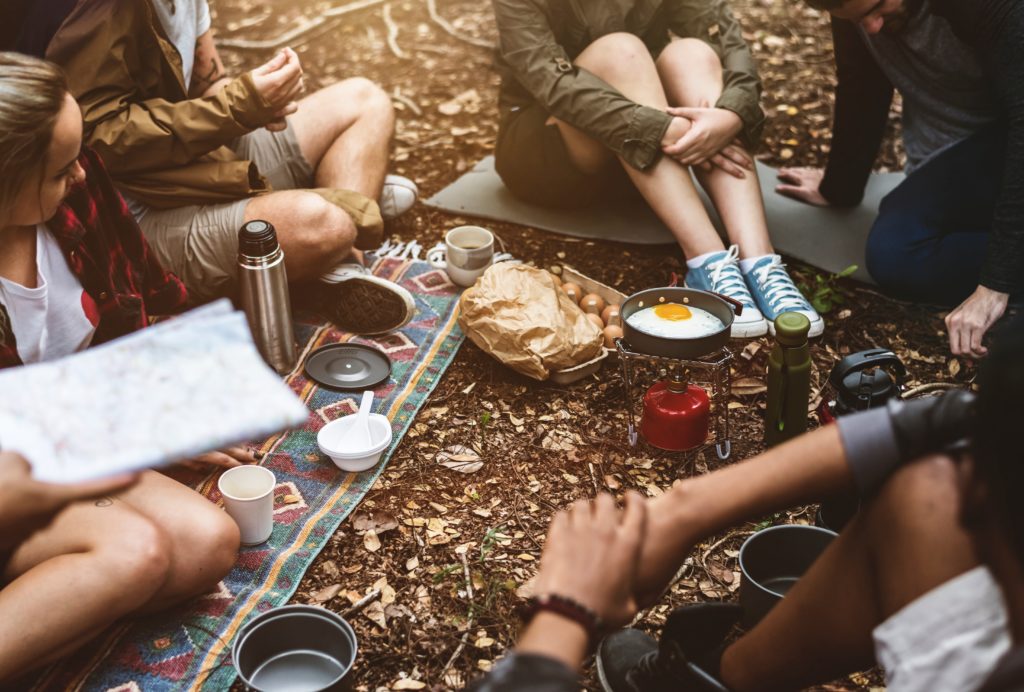
We recently conducted a case study of our client, Camp Bangarang, where we were looking to learn from them what it was like while they were starting a non-profit.
Camp Bangarang provides a fun, empowering, and completely free camp experience for children with life-threatening illnesses and their families, all across the Midwest. We wanted to find out what led Camp Director Mark Sigel to start this non-profit camp, and how he went about it. Below is our Q&A with Mark, in which he tells his story and offers advice to anyone who may be thinking of starting a non-profit.
Q: What inspired you to start Camp Bangarang?
A: I was diagnosed with muscular dystrophy as a teenager, and I attended camps for kids with diseases and found it really helpful. I then volunteered at these camps and ended up working for the Paul Newman-founded Serious Fun Network of camps for about 8 years. When a close friend of mine’s child also was diagnosed with a disease, they were looking for a camp to go to, but the nearest one was in Colorado. That’s when I started thinking about how we could possibly make these camps more accessible for folks in the Midwest.
Q: What initial steps did you need to take in order to get this off the ground?
A: Well, I definitely didn’t know what I was doing. I had always worked for established non-profit organizations, so the process of starting a non-profit was completely foreign to me. I’m a camp guy – so when it comes to archery, I’m your man – but the business side of things I knew I really needed help with. I recruited some great help from people I knew in various fields including a CPA, an investment broker, a firefighter with board and management experience, and a lawyer. These people serve on our board, and they are vital to this organization.
The steps we had to take were to file with the state and IRS so we could get the tax exemption status. Plus we knew we would need to raise some funds in order to get some key things like a website to attract attention and spread the word, as well as a camp location to rent so we could conduct our own camp, because purchasing that much land this early is too cost-prohibitive.
Q: What surprised you in the process? Was it easier or harder than you’d anticipated?
A: The process overall wasn’t very surprising to me, because I think my anticipation of what it would be like ended up being pretty accurate. These days, there is so much material and so many resources out there that you can learn a ton about nearly anything, so I had done a lot of looking into what the process of starting a non-profit would be like and I felt prepared for it. The one thing I will say, however, is that it takes a long time when you’re dealing with paperwork and the state. If you get “gung ho” and decide to go for it, don’t expect it to be a one-month, quick process. You need to have a deep passion for it and a patience to see it through.
Q: What was the greatest struggle you faced? How did you overcome it?
A: The greatest struggle we’ve faced so far, and probably a common struggle when starting a non-profit, is simply getting the word out about who we are and what we do. When applying for grants and whatnot, we face a much steeper climb than United Way or these other big non-profits. We’re constantly having to explain what we do so we can get funding, support, and of course camp attendees.
The ways we’ve overcome this is by taking and seeking every opportunity to tell people about it. We attend all sorts of public events and meetings, from having a vendor booth at conferences, to making appearances at local Rotary Club meetings. We were also fortunate to have a billboard spot donated to us, so we’ve been able to utilize that as a way to catch more eyes. We’ve even reached out to a lot of the local news and radio stations, and they’ve allowed us to come on their programs to talk about the camp and our mission, which helps drive more traffic to the site and gain more awareness.
Q: What was a great point of success? What/who helped make that happen?
A: The initial fundraiser was a huge success for us, as we were able to double our fundraising goal – we held public picnic that consisted of a raffle and a silent auction. The other big success was our first camp, which we held in October 2018. The kids had a blast and were all safe, and the parents want to bring their kids back, which is a great sign! I always am looking for ways to improve, so I’m sure things will change and get better, but it was a really great first camp.
The credit for this success goes to my awesome board of directors who have volunteered their time and skills to this. Plus, all the people who have donated are a incredibly important, considering it’s a free camp. Oh and our volunteers for the camp were incredible. We had volunteers come from all over the midwest and even fly in from California and Ohio.
Q: What advice do you have for other people out there who are thinking about starting a nonprofit?
A: If you’re just starting a non-profit, you have to do your due diligence and see if anyone is already out there doing what you want to do. You don’t want to get too married to the idea that you decide to pursue it despite the larger, more established organization 50 miles away that has the same mission. If you’re passionate about a cause and there is someone else out there doing it, then you should see how you can come alongside that group and help them, rather than try and start your own competing non-profit.
Q: What tool has been the most helpful to you?
A: Well most people, myself included, when they hear about something and want to learn more about it – the first thing they do is google it and find the website. I knew that a website was going to be one of the first things we’d need to get up and running so that we could have a professional face to our organization where folks can come to learn more.
We had a good idea of what all we wanted included on the website already, and we brought it to Big Imprint, and you all did a great job executing on that and have been great to work with ever since.
Please take a moment to visit Camp Bangarang’s website and learn about the important work they’re doing (and maybe consider donating!).



















